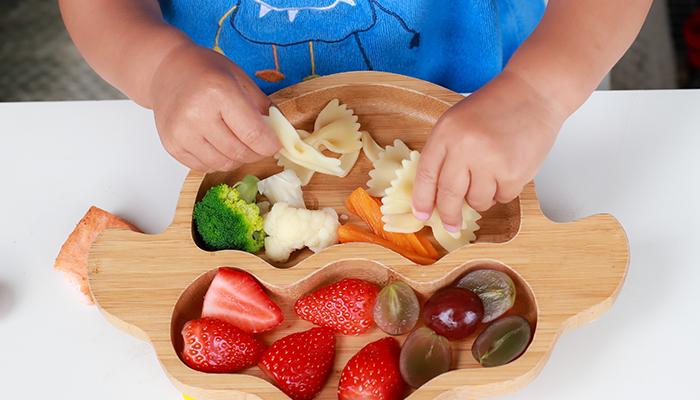The South Lake Pediatrics blog continues to focus on the topic of nutrition and your child in 2022. We hope you enjoy our latest edition.
Is my child eating enough? This is a question I hear often at well visits, especially when kids enter the toddler stage. As anyone who has had a toddler before knows, these kids are busy, independent and opinionated. Toddlers are still growing at a rapid pace, but their growth slows in the second year of life and comes in spurts. Therefore, their appetite can vary widely from day to day. One day they may eat three huge meals, but the next day they may eat just a few bites and be done. This can be worrisome as a parent, because we all know how important good nutrition is to our children’s growth.
Appetite is controlled by a complex string of hormones and chemicals in the body. Amazingly, our bodies are naturally wired to crave the right balance and amount of foods we need based on current activity levels and growth stages.
It’s pretty common for toddlers to go on food jags. A toddler’s food preferences can be erratic, just like their behavior. Developmentally, toddlers are learning to become more independent and what food they put in their mouth is one area they can have some control over. It’s common for them to love one food and eat it every day for a week and the next week to decide to toss it all on the floor and not eat one single bite.
Ellyn Satter is a well-respected dietician and psychologist who specializes in nutrition and childhood feeding. She presents a model of feeding called “The Division of Responsibility in Feeding”. In short, she proposes that it’s the parent’s job to offer their child a variety of whole, healthy foods at set meal and snack times and it’s the child’s job to decide if they are going to eat and how much they are going to eat.
Feeding your child this way really takes the pressure off of mealtimes. But it requires trust on the part of parents. Instead of focusing on specific amounts and how to get your child to eat more, a parent can instead focus on preparing a healthy meal and enjoying the meals together. As your child’s pediatricians and nurse practitioners, you can know that we are tracking your child’s growth closely at all well visits and will alert you to any concerns we have. Hopefully, this helps you to guide your child to develop a healthy relationship with food and grow into the bodies they were meant to have.

Leave a Reply